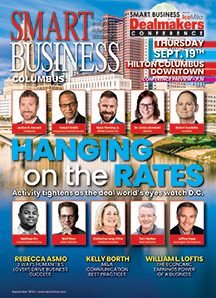The Pittsburgh region is nonprofit rich, which helps make the area a special place to live and raise a family. But it also makes it incredibly competitive for funding, which means nonprofits need to build powerful boards of directors who can help advance the mission of the organization and ensure its perpetuity.
Getting involved with a board is a great way to give back to a cause you care about because nonprofits are looking for passionate people who advocate for the group as part of their normal networking.
“You should look at me, because you’ve heard me talk about them enough, and say, ‘Here comes Dotti, I wonder if she’s going to tell me about the Pittsburgh Vintage Grand Prix or the Vintage Senior Community Center in East Liberty,’” says Dotti Bechtol, fiduciary asset business development officer at Fragasso Financial Advisors.
Smart Business spoke with Bechtol, who has served on nonprofit and for-profit boards and as a nonprofit executive director, about how nonprofits and boards can work together to create a strong organization.
What is the biggest misconception of executives who join nonprofit boards?
If you’ve joined a board because you think it will be good exposure to have your name on the website, you’re not being a strategic partner who can help guide the organization. It’s really not about you. It’s about the benefit you can bring to the nonprofit. And it really isn’t the place to market yourself; that’s not why you were invited to join, and it’s not what your focus should be.
You will have a number of expectations put on you as a board member, so it’s critical to join an organization where you have a particular interest. For example, if you have a child or family member with autism, you care about and are experienced with it and, therefore, will make a better board member for an autistic society.
Are nonprofit boards different from serving on for-profit boards?
It depends on whom you ask, but not really. They have the same problems. Just because you’re a nonprofit doesn’t mean you don’t pay attention to your budget. You can’t be losing money constantly and keep your doors open. The expectation of profit is just a lower amount of money with nonprofits.
So, what kinds of fiscal problems should board members be on guard against?
You need to thoroughly understand the financial statement, as a board member, in order to have the foresight to see problems. You can’t just rely on your finance committee.
As a board member, you are a fiduciary and have personal liability for what happens to the assets you’re charged with guarding. That fiduciary responsibility doesn’t just apply to the endowment and board directed funds, it also applies to the retirement plan.
In your experience, what are best practices for creating a strong board of directors?
Nonprofits should recruit board members carefully, and then vet them through LinkedIn, Google and referrals. Fill board seats with people who have the skills to fill a gap, and then be honest about why they are being asked to join. If an organization can’t afford an attorney on staff, find an attorney willing to give general guidance pro bono because he or she is on the board.
It’s a good idea to have a written job description so everyone understands the expectations and limitations. It’s better if board members know upfront the attendance policy, if they need to join a committee and if they are responsible for a certain amount of fundraising.
New board members should go through a thorough orientation. They need to learn about the organization’s history, get a tour of the facility, understand all of the programs and meet the people the nonprofit serves.
The executive director needs to run an efficient meeting that gives an overall view of what’s happening. Board members should contribute time beyond the scheduled meetings, including reading board packets in advance. It shouldn’t be something board members just think about when seated at the table for the meeting.
Finally, senior staff and board members should celebrate the successes. Boards don’t need to just be present for the problems. Celebrate your shared successes, acknowledge each other’s contributions and say thank you.
Insights Wealth Management is brought to you by Fragasso Financial Advisors

